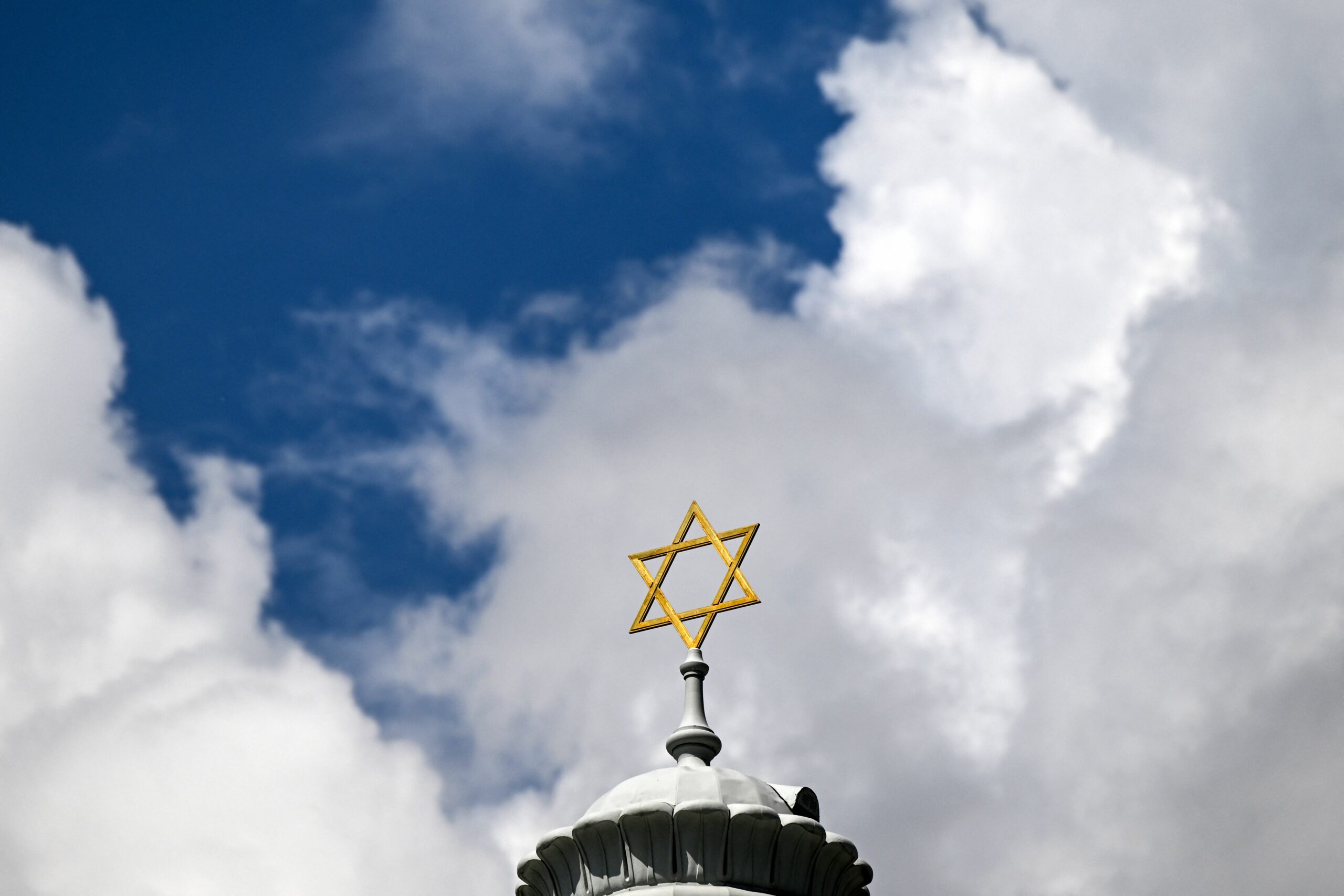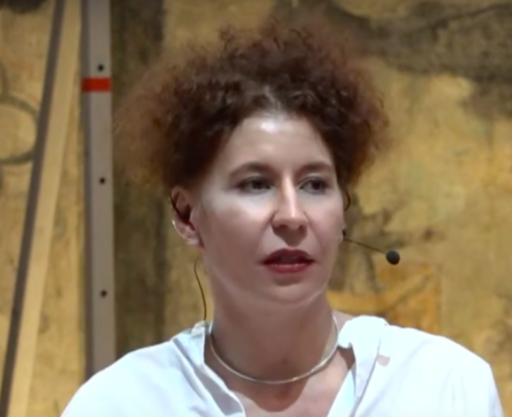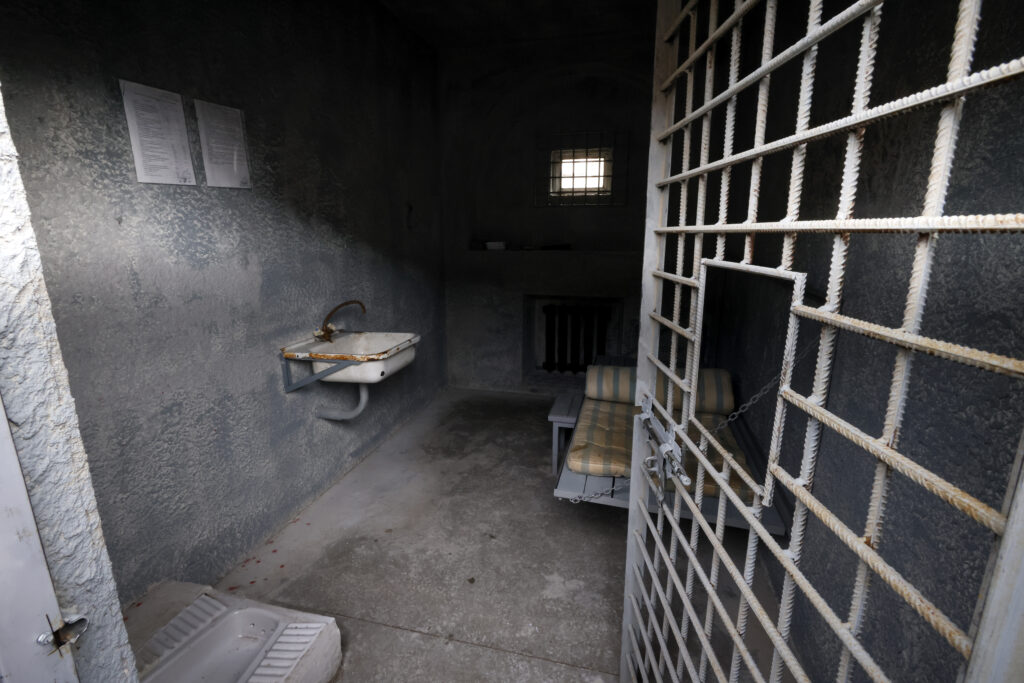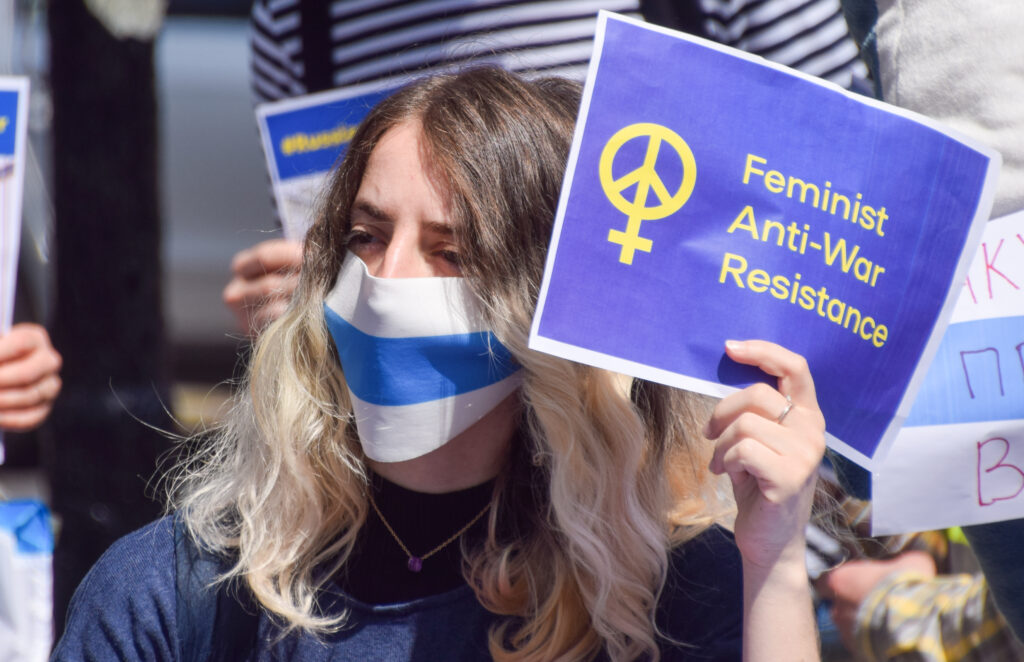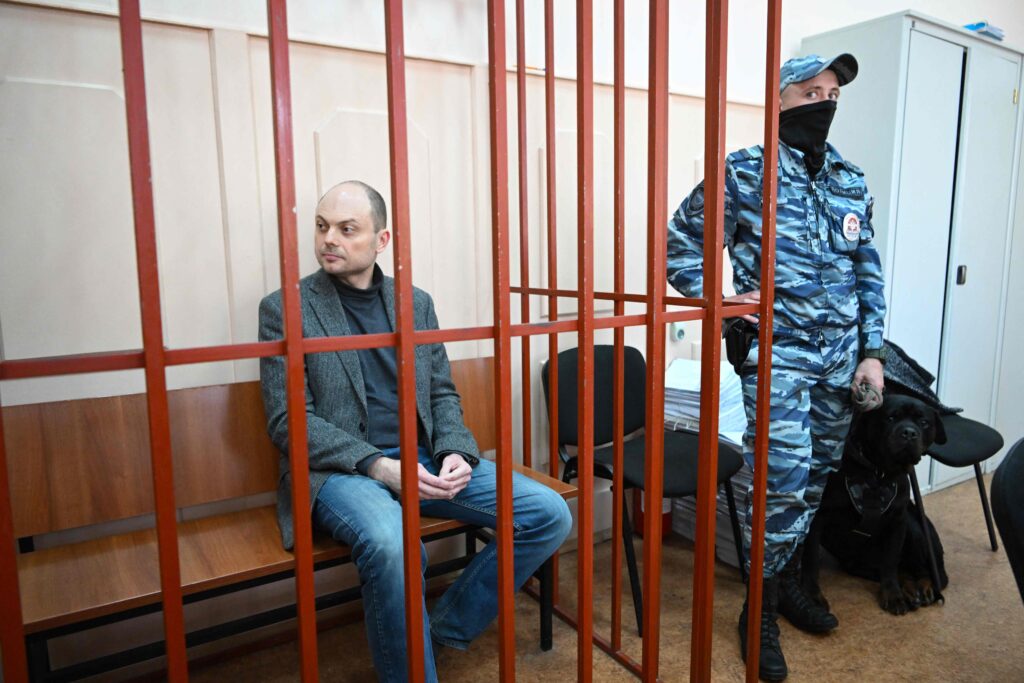Russian propaganda is portraying the Kremlin’s war against Ukraine as a reincarnation of WWII. The historical parallels are dubious; but geographically the current conflict is waged in areas where some of the Holocaust did indeed take place. Consequently, Russia’s full-scale invasion of this actual and symbolic geography has reactivated revisionist discourses about WWII era collaboration, the Holocaust, and Ukrainian Jewish history. The Russian regime spins conspiratorial narratives about the «real» causes and beneficiaries of the war, which both revive dormant Soviet-era prejudices and create new ones, all linked to Jewishness. However, the return of anti-Semitism to the public sphere is shaped not only by Russia’s war against Ukraine and its hostile relations with the «collective West,» but also by a number of dynamic domestic and international factors.
From Gaza to Dagestan
Last October 28, a two day outbreak of pogroms swept the North Caucasus. These erupted after a two-and-a-half-week anti-Semitic campaign on regional Telegram channels — all part of a global surge in anti-Semitism following the October 7 attack by Hamas on southern Israel and the subsequent IDF operation in Gaza. The authorities were indecisive in their response, and remarkably lenient in their treatment of the rioters. Putin blamed the incidents on «evil forces operating from abroad,» especially «the USA and its satellites», i.e. Ukraine. The pogroms were thus reframed as an extension of the war Russia is waging in Ukraine against Washington’s «global dictatorship.»
The Kremlin has made it abundantly clear which side it supports in Israel’s war against Hamas: on October 26, Moscow hosted a joint meeting of senior Hamas members and Iranian Deputy Foreign Affairs Minister. Four days later, at a session dedicated to the outbursts of anti-Jewish violence in Dagestan, Putin changed the subject to talk about Gaza: «When you look at the suffering and bloodied children, you clench your fists and tears come to your eyes.»
Russia’s endorsement of Hamas translates into a global disinformation campaign meant to undercut Israel and its key ally, the US. It signals the end of more than three decades of entente between Russia and Israel, cemented in the last 16 years by Putin’s personal and ideological affinity with Netanyahu’s brand of nationalist authoritarian populism. Seeking to assert itself as a leader of the Global South, Russia seems ready to resume its old cold war era role as a patron of the Palestinian cause. Conveniently, its propaganda can draw on the rich repertoire of anti-Zionist tropes it has inherited from the decades of Soviet demonisation of Israel, some of which have already been reactivated in Russian TV shows on, «Z» Telegram channels, and on various media and digital platforms. This disinformation campaign seeks to relativise Russia’s own aggression against Ukraine, distract attention from it and undercut western supplies of arms to Ukraine. It pushes the narrative of «double standards» by comparing Western condemnation of Russian aggression against Ukraine with an alleged endorsement of Israel’s operation against Hamas. It hints at conspiratorial fantasies, blaming all global confrontations on the machinations of the US, which Putin likened to a «spider» that is the «root of all evil» — an image eerily familiar to scholars of both Nazi anti-Semitic and Soviet anti-Zionist propaganda. Finally, the sheer scale of this campaign, overwhelming users with an avalanche of emotionally charged content (some of it AI-generated or recycled from places like Syria) further polarises global public opinion and deepens distrust of any media coverage of both the war in Ukraine and the IDF’s operation.
However, the current rise of anti-Semitism in Russia is more than a mere reflection of a global trend emerging from the post-October 7 escalation in the Middle East. To better understand its dynamics we need to examine its domestic context too.
The arch-conspiracy theory
To those observing the recent surge in anti-Semitism in Russia, the riots in Dagestan were a continuation. Since February 24, 2022, Putin, his officials and propagandists have made a slew of anti-Semitic comments. A lot of these remarks betrayed the Russian leadership’s obsession with Volodymyr Zelensky’s Jewishness that has long posed an awkward problem to Russia’s «denazification» narrative, but they did not stop there.
In his highly personalised authoritarian regime, Putin has long played the role of «tsar-emancipator», sending signals down the power vertical and to the population at large about the changing do’s and don’ts, and overturning previously held taboos. With a few exceptions, public expressions of anti-Semitism used to be one such taboo, solidifying Putin’s reputation as someone sympathetic with Jews, even a philosemite. Officially the Kremlin denounced xenophobia and distinguished between the isolationist ethnic nationalism that it condemned and the broader Russian imperial nationalism that has become Putinism’s dominant framework, especially after 2014. Today it no longer matters whether Putin harbours anti-Semitic prejudices or not. If he does, parenthetically, it would not have been all that unusual, since he and others from his entourage, from Lavrov, to Chemizov, Patrushev and Cherkesov, hail from Leningrad KGB, which by many accounts, was one of the most viciously anti-Semitic of all the KGB organisations. However, Putin’s personal convictions are irrelevant: what matters is what he says and does, since these are the signals eagerly awaited by his propagandists and senior officials who spread them further. The very logic of his regime and the forces it has unleashed domestically and globally has made the return of anti-Semitism into political rhetoric inevitable.
Putinism has often been described as lacking a coherent ideology and being remarkably adaptable to different ideological demands. From the 2007 Munich speech onwards the ideological vacuum at its core has been increasingly filled with Manichean «us-versus-them» conspiracy thinking that has contaminated the public imagination, variously manifesting itself in Russians’ denialist attitudes to pandemics, a besieged fortress mentality and, currently, in pervasive public denial of Russian atrocities in Ukraine. In a sense, Anti-Semitism is the arch-conspiracy narrative that offers a repertoire of interchangeable enemies, all of which can be substituted with the code word «Jew.»
Current Russian Anti-Semitic discourses do not need to be cohesive. They simply plant buzzwords, like «cults,» «liberals-traitors,» «the fifth column,» «Western globalist elites,» «Russophobes,» «Satanists» into public consciousness and link them with Jewishness. The fertile soil of cultural memory of Soviet anti-Semitic and anti-western campaigns does the rest. What is new here is the transition from latent anti-Semitism to overt or thinly veiled anti-Semitic innuendos that are voiced by Putin’s entourage, diplomats, propagandists and celebrities and no longer cause embarrassment.
«Satan’s Seed»
A 2022 soldier’s manual approved by the Defence Ministry explains the goals of the war to the mobilised: «All power [in Ukraine] is concentrated in the hands of citizens of Israel, the US, and the UK, who have masterminded the genocide of indigenous inhabitants. […] Today all of us, Russian Orthodox and Muslims, Buddhists and shamanists are fighting against Ukrainian nationalism and the global Satanism that backs it.»
The passage echoes a 2019 article by Sergey Glazyev, Putin’s economic adviser at the time. Glazyev argued that the US’s support for Zelensky was a sign of the Americans acting in cahoots with the far-right forces in Israel seeking to resettle Israeli Jews, allegedly tired of the endless hostilities in the Middle East, in south-eastern Ukraine that had been «cleansed» of ethnic Russians by the «Kyiv regime.»
This newly found obsession with sects and «Satanism» is more than just a spill over from the Russian Orthodox Church’s apocalyptic rhetoric. It signals the addition of another bogeyman to the inventory of the many evils that Russia is currently fighting in Ukraine, planted alongside references to «Jews» or «sects.» In October 2022, a two-star general Aleksey Pavlov, assistant to Patrushev, head of the Security Council of Russia, wrote of the need to «de-satanise» Ukraine, which he claimed, had been turned into a totalitarian hyper-sect masterminded from Washington D.C. and home to hundreds of neo-pagan cults. One of these cults, Pavlov asserted, was Chabad-Lubavitch. The usually compliant Chief Rabbi of Russia, Berel Lazar, expressed outrage at the incident, warning of the onset of «a new era in Russia’s relations with Jews.»
This new era has been inaugurated with Zhenia Berkovich’s and Svetlana Petriychuk’s May 2023 arrest on charges of «justification of terrorism» for the play Finist the Brave Falcon that Petiychuk wrote and Berkovich directed in 2021. The prosecution employed a team of pseudo-experts to analyse the play, including a certain Roman Silantiev, inventor of the pseudo-science of «destructology» that deals with «destructive cults and extremism.» Silantiev explained his support for the arrest by claiming that «[theater productions] justifying terrorism are absolutely inacceptable […] even when it’s done by people who have, I beg your pardon, Jewish background. It’s not the first time that I get to see it — the Jews actively support the Wahhabis, it seems that they do it to spite the Russians.»
«The Liberal Traitors»
Berkovich’s case activates another powerful trope: Jews are rhetorically equated with «liberals», the «fifth column» of cowardly traitors who flee the country and do not support its war. With her unambiguous anti-war stance Berkovich fits the bill to a tee, although she stayed in Russia. This trope has been in the making for more than a decade, chiselled in a series of public scandals and personal attacks: i.e. Zakhar Prilepin’s 2012 «A Letter to Comrade Stalin» or Ulyana Skobeyda’s 2013 regret that «Nazis did not make lampshades from the skins of the ancestors of today’s liberals.» The attackers invariably suffered no consequences; the notoriety only boosted their careers.
In the spring of 2014, a huge banner appeared on Moscow’s central bookstore, clearly sanctioned by the authorities. Above the faces of opposition figures denouncing the annexation of Crimea, the caption read: «The fifth column: strangers among us». One of the depicted «traitors», Boris Nemtsov, was assassinated ten months later. Expressing condolences to Nemtsov’s mother, Putin addressed her by her maiden name, Eidman. Many generations of Soviet Jews excelled at discerning subtle signals of danger «from above», and the president «unmasking» someone’s Jewish name was bad news.
More recently, Putin publicly mocked the founder of Yandex, Arkady Volozh, and former aide Anatoly Chubais, both of whom now live in Israel. Putin accused Volozh of ingratitude towards Russia and suggested that he was condemning the war in Ukraine only to curry favour with the Israeli authorities. He also falsely alleged that Chubais had changed his name to «Moshe Israelivich» and was on the run and hiding in Israel.
Russian propagandists, including RT chief Margarita Simonyan, «Z» Telegram channels and pro-Kremlin culture makers have attacked celebrities who have left Russia, particularly those who have settled in Israel: «They didn’t want to live in a country that was waging war,» the argument goes, «only to move to the one that is constantly at war with its neighbours. Double standards, how typical.» In a much-publicised interview, Soviet-era actress Valentina Talyzina claimed that the famous singer Alla Pugacheva (who supported her husband, comedian Maxim Galkin, listed as a foreign agent by the government, in his criticism of the war) and actress Liya Akhedzhakova, long-time critic of Putinism, were both «hiding their Jewish patronymics.»
«Russophobia as the new anti-Semitism»
Russian propaganda weaponises accusations of anti-Semitism and historical responsibility for the Holocaust to justify military aggression against Ukraine. By this logic, the «Nazi,» the anti-Semite, the «aggressor» is always the other, while Russia is vying for the position of the main victim, which is coined in the popular expression: «Russians are the new Jews.» Any criticism of Russia’s actions is interpreted as an expression of «Russophobia,» which is then likened to anti-Semitism. Back in 2017, when questioned by Megyn Kelly about Russia’s possible interference in the US 2016 elections Putin compared these accusations to anti-Semitism: «When one is stupid and inept then the Jews are always to blame.» In March 2022, he again likened an avalanche of Western sanctions against Russia to anti-Semitic attacks: «The West dropped its mask of civility and began to act belligerently. It begs a comparison to the anti-Semitic pogroms in fascist Germany.» From mid-2022 on, various lawmakers began to lobby for the criminalization of «Russophobia», calling it «anti-Semitism of the 21st century.» Putin’s speech and these initiatives developed the thesis put forward by member of Presidential Council for the Development of Civil Society Alexander Brod, who identifies as a Jew, and who compared «a wave of Russophobia in the West» with the Nazi persecution of the Jews. That such ideas should be expressed by someone who is professionally dedicated to the promotion of Jewish culture is, of course, deeply disturbing and reminiscent of the Soviet practice of enlisting public Jewish figures in the Soviet Anti-Zionist Committee.
The equation of anti-Semitism with «Russophobia» struck a chord with the Russian public on both ends of the political spectrum, as it was eager to pose as the main victim of both the war and the sanctions. Rock band «Leningrad» recorded a song titled «No Entry,» which decried «genocide unleashed against the Russians» and claimed that for Europeans «A Russian is a new zhyd [kike] and should be burnt in a furnace.» Discussions of EU travel restrictions on Russian-language social media accounts similarly drew comparisons between Russians struggling to obtain EU visas and the Jewish passengers of the MS St Luis fleeing Nazi persecution in 1939, adopting some of the Kremlin-spun propagandistic clichés that delegitimise historical narratives and security concerns of Poland and the Baltic states by invoking wartime collaboration in the destruction of local Jews.
Russian Jews fear the revival of anti-Semitic policies
The above-mentioned discourses do not exhaust the repertoire of anti-Jewish accusations circulating in the Russian media and political rhetoric. There are also narratives of the Jewish «puppeteers» behind the Maidan and the war in Ukraine, Zelensky’s alleged connections to the international «Jewish circles» that enable him to procure support for Ukraine, and so much more. The frequency with which references to Jews, Israel or various aspects of Jewish history (most notably, the Holocaust) have been used by Russia’s top officials, culture-makers and propagandists over the last two years, cause mounting concerns among the country’s remaining Jews.
In the summer of 2022, sociologist Aleksey Levinson conducted a series of group discussions with the Jews in several Russian cities. Whereas in the Levada Center’s 2020 study respondents claimed that anti-Semitism in Russia was almost non-existent, the 2022 survey revealed a pervasive expectation of its growth and fear of the possible revival of Soviet anti-Semitic practices. This fear is understandable given that Russia’s domestic and foreign politics has noticeable shifted towards Soviet practices both in terms of style, rhetoric and substance, and the state — embodied by the president — is still perceived as the key agency that can stir or suppress hostility towards certain minorities. The closing of the Russian office of Sokhnut in 2022, the forced departure of the former Chief Rabbi of Moscow Pinchas Goldschmidt who refused to support the invasion of Ukraine and called on the Russian Jews to emigrate, vilification of Israel and public anti-Semitic innuendos, are all interpreted by Russian Jews as unmistakable signals that fortunes have changed.
The return of anti-Semitism to the public sphere is an important symptom of on-going degeneration of both the political system and the «norms» that hold society together, which have become unhinged since February 24, 2022. Just as the rise of anti-Semitism in the final years of Stalinism reflected society’s isolationist paranoia and the regime’s search for new enemies, so the current resurgence of anti-Semitism is a miasma signalling the moral decay of Russia’s social and political institutions and pervasive conspiracy thinking.
Anti-Semitism is not a coherent ideology, but a state of mind, or — as ethnographer Valery Dymshits put it — a bacterium that can lie dormant for years. Once its host organism is weakened by a crisis, the bacterium begins to multiply at an astonishing rate. At present, both the international context — Israel’s war against Hamas, Russia’s war against Ukraine — and the domestic imperatives that stem from the very nature of Putin’s regime (isolationism, conspiratorial thinking, witch-hunts) have created a pathogenic environment that has stirred previously latent animosities and brought them to the fore of public and political discourses. It remains to be seen whether this animosity will remain purely rhetorical or develop into discriminatory practices.
